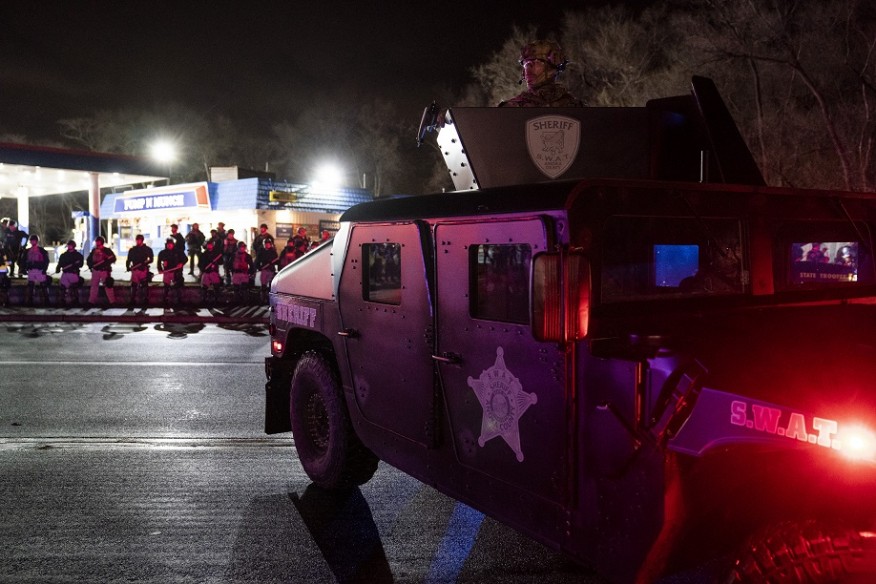How Can We End the Cycle of Police Violence?
April 13, 2021
Dear Michigan Social Work Community:
The tragic loss of Daunte Wright, a 20-year-old Black man killed by police during a traffic stop in Brooklyn Center, Minnesota fills our community with pain, fear and anger. Day-to-day interactions, like traffic stops, put Black members of our community lives at risk every day. Each incident of injustice is a dark reminder of the amount of work to dismantle systemic racism and oppression in our law enforcement and in society.
How Can We End the Cycle of Police Violence?
The Michigan Social Work community can contribute in the following ways by using our core professional competencies:
ENGAGE: Commit to being involved in the process of a just and safe society for all.
- Get to know your local politicians’ positions on criminal justice reform and voice your opinion on smart criminal justice policy. This includes governors, state representatives, mayors, city and town council members, sheriffs, wardens, corrections managers and all political candidates.
- Attend community meetings, rallies and information sessions for the community you reside in.
ASSESS: Obtain information about historical and current policies, procedures and practices.
- Learn about policing, crime and the criminal justice system, and reimagine the role of social work within it.
- Continue to consider your own views, values and beliefs about legal matters.
- Assess the views, values and beliefs of your friends, colleagues and community members.
- Learn about the impact of the trauma and vulnerability of our clients, many of whom are all too often swept up in our massive criminal justice system.
- Research current policies and procedures of your community law enforcement agency.
- Identify national standards for policing.
INTERVENE: Utilize evidence-informed interventions to achieve the goal of a just and safe society for all.
- Insist on greater transparency in the criminal justice process.
- Insist on the establishment of a citizen oversight board with subpoena power and volunteer your service.
- Insist that your local law enforcement agency becomes accredited.
- Insist that your local law enforcement submit data for use of force to the Federal Bureau of Investigation.
- Call for new national standards on police use of force and its implementation.
- Require all officers to undergo robust implicit bias training and offer to provide it.
- Work with police departments to create mental health response teams and become a member.
- Call for the access of independent research on all criminal justice encounters, including police stops, the use of force, tickets, administrative fines and fees, the court process, and the jail and prison system.
- Advocate for and provide trauma-informed mental health services to law enforcement officers.
- Provide a brave space for encounters between community members and the police within your agency, organization, business, community or place of worship.
EVALUATE: Continually examine and analyze results to improve and inform.
- Monitor the efforts in your community.
- Review reports.
- Engage in community-based participatory research.
Social workers understand that intervention is an ongoing component of the dynamic and interactive process of social work practice. As a community, this is a reminder of the ongoing work that we have all committed to doing.
In the days ahead, please ask for the help that you need. Generously provide flexibility and support to friends, family and colleagues. Please recognize that we all process differently — some of you may want to talk about how you are feeling, others will need time to process things individually. Please reach out to:
- The School of Social Work Office of Student Services staff is available to link students to needed resources.
- U-M Counseling and Psychological Services — CAPS services include tele-counseling, crisis support, and virtual outreach.
- University Health Service offers health care and individual wellness coaching to support students’ well-being and can be provided in-person or virtually. Stress Management Resources is a collection of local and national stress management, health and depression resources.
Black Radical Healing Pathways and The Association of Black Social Work Students will be holding a virtual candlelight vigil to honor the life of Daunte Wright along with all of the Black lives we have lost to police terrorism. Please join us as we create a space for healing.
Friday, April 16, 7:30 PM
Stand-up and Speak Out,
Daicia Price, Clinical Assistant Professor
Lynn Videka, Dean and Carol T. Mowbray Collegiate Professor
Lorraine Gutiérrez, Associate Dean for Educational Programs
Joseph Himle, Associate Dean for Faculty Affairs
Rogério Meireles Pinto, Associate Dean for Research and Innovation
